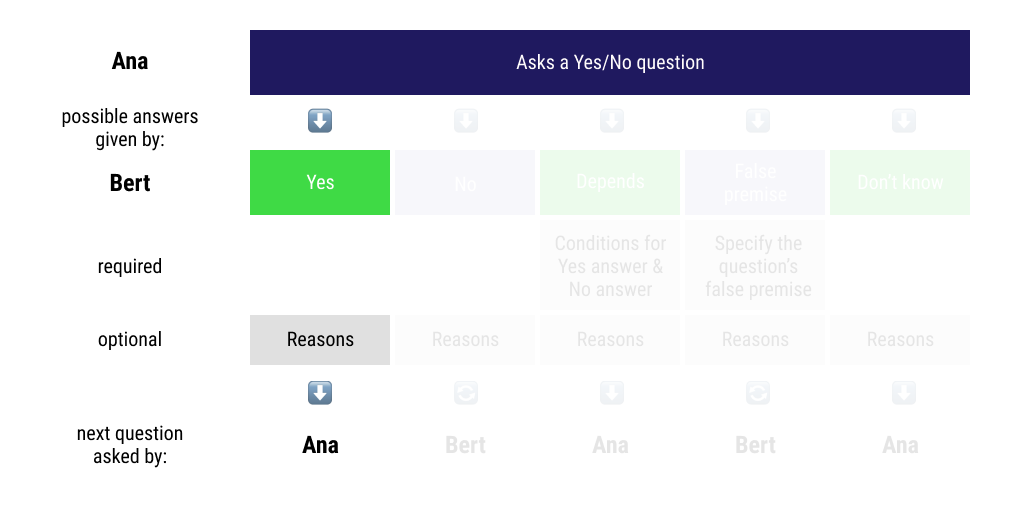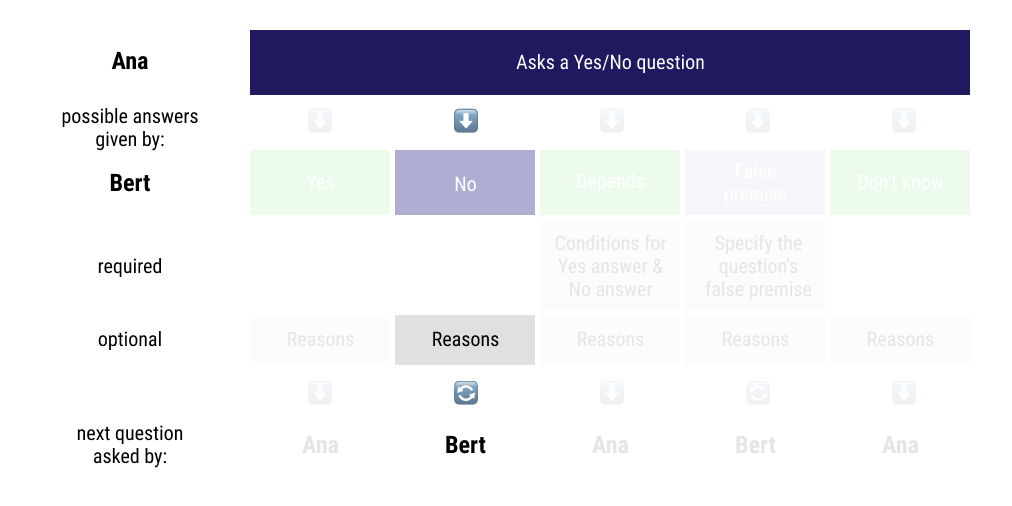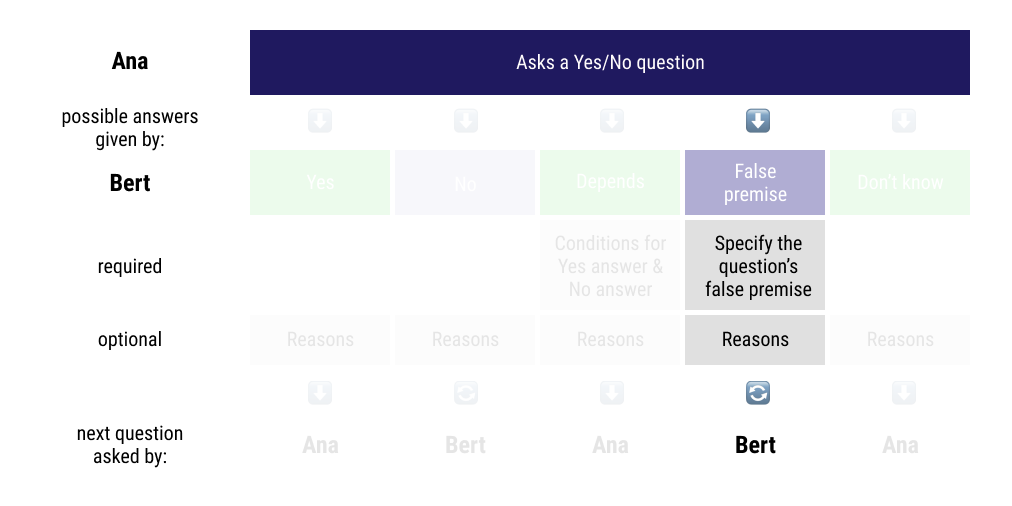Imagine a debate where
- no arguments are ignored
- all questions are answered
- and at the end, all people agree
(Or at least actually know why they disagree.)
Is this possible? Maybe!
How it works
A Yes/No debate has only Yes/No questions, like a 20 Questions game:
- If you get a Yes answer, you can ask the next question, so the roles remain.
- If you get a No, the roles change: Your co-player can start asking.
Besides “Yes” and “No”, you can answer:
- Depends (roles remain)
- False premise (roles change)
- I don’t know (roles remain)
You play until you like. There is no winning, only of insights.
An example debate
Let’s play an example. Bert starts a new debate, claiming:
People should be allowed to carry guns in public.
He adds a short elaboration of 3-4 sentences. Ideally, he adds falsification criteria, i.e. what he would need to be convinced of to change his mind.
Ana joins and asks:
Should people be allowed to carry rifles?
Bert answers: Yes.
(Ana got a Yes, so she can continue.)
Ana asks:
Should people be allowed to carry hand grenades?
Bert answers: No.
(Now it’s clear that even Bert sees some limits.)
Next, Bert is asking:
Should people be allowed to carry knives?
(The following images still contain Ana as the asker but yes, it’s Bert that’s now asking.)
And Ana answers: It depends. Yes, if it is about small knives (maybe blades of 10cm). No for long blades.
(It is enough to only give one example for “Yes” and for “No”. They don’t need to be exhaustive, i.e. not need to cover all possible cases.)
Bert keeps asking:
So people should not be allowed to carry hand grenades, while the police have them?
Ana objects: False premise: The police do not have hand grenades.
(Roles change, it’s Ana’s turn again.)
Final example from Ana:
Do more people die from guns than from drugs?
Bert: I don’t know.
(Next, Ana could cite a source and ask Bert if he finds it trustworthy, and build an argument with more questions.)





